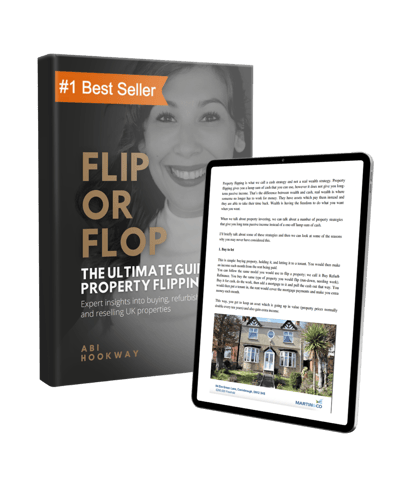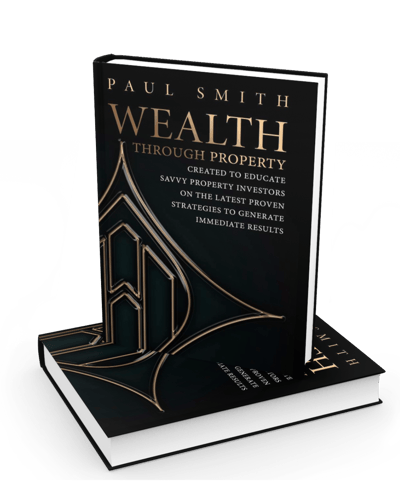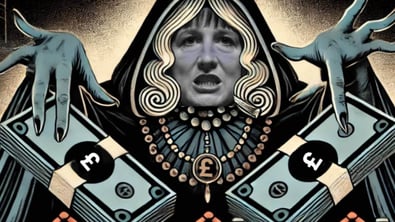The Census, compiled by National Statistics, has revealed that the number of homes owned outright is now greater than the number of properties owned with a mortgage.
The census provides information on big changes in the last ten years in the property market and showed some interesting trends.
What does the changing landscape mean for property investors? This blog post explains.
What is the census?
The census happens every ten years and provides a picture of the people and households in England and Wales.
It asks questions to the population about themselves, their household and their home.
In receiving this information, it helps to build a detailed snapshot of our society.
This then helps the government and local authorities to plan and fund local services, such as education, doctors’ surgeries and roads.
What trends in property does the census show?
The census revealed:
- In 2021, there were 24.9 million dwellings in England and 1.5 million dwellings in Wales, which has increased by 8.5% in England and 6.0% in Wales since 2011.
- Semi-detached housing was the most common accommodation type in occupied dwellings (31.5% in England and 32.1% in Wales), while flats, maisonettes and apartments were the most common in unoccupied dwellings (44.4% in England and 25.4% in Wales).
- In 2021, owned outright was the most common tenure category in both England (32.6%) and Wales (38%), which is consistent for Wales since 2011, but has overtaken owned with a mortgage or loan as the most common in England.
- Flats, maisonettes and apartments were most common in both private and social-rented dwellings in England, while in Wales terraced dwellings were most common for private rents and semi-detached for social rents.
- Private-rented dwellings in both England and Wales had a higher percentage with no central heating and a lower percentage with mains gas compared to other tenure types.
- Dwellings with three bedrooms were the most common across all English regions and Wales, except for London where dwellings with two bedrooms were most common.
What does the most recent census reveal about mortgages?
Overall, 62.4% of occupied dwellings in England and 66.4% in Wales were owned either outright, with a mortgage or loan or shared ownership.
Properties owned outright was the most common category, with 32.6% in England and 38% in Wales.
On the other hand, properties owned with a mortgage or loan saw the biggest decrease in both England and Wales. The volume decreased by 4% to 28.8% in England and by the same amount, to 28.1% in Wales.
Outright ownership was the most common type of dwellings in Wales in both 2011 and 2021, increasing by 2.6% over the 10-year period.
There were trends regionally too.
The percentage of dwellings that were owned outright has increased in Wales and all regions except London, where it decreased from 21.3% to 20.8%.
The largest increase in ownership outright was in the North East, with 32.5% owned outright in 2021 from 28.6% in 2011.
What are the current trends in property ownership telling us about the market?
The change in ownership needs to be contrasted with movements in the private rental market.
Private renting increased in every English region and Wales, with London having the highest increase – 29.9% in 2021 compared with 24.8% in 2011.
Ultimately, the ten local authorities with the highest proportion of privately-rented dwellings are all in London.
Of London’s 33 local authorities, 27 had a private rent percentage of above 25%.
Experts said that the findings illustrate an ageing society, with more than 11 million people in England and Wales aged 65 or older.
Half a million people are now over 90.
Helen Morrisey, head of retirement analysis at Hargreaves Lansdown, said: “The increased percentage of homes owned outright may seem surprising, but given our ageing population it could be explained by older workers looking to get their mortgage paid off before retirement.
“The percentage of homes owned outright grew in all areas except London – testament to its extremely high house prices.
“While it is good to see more people have paid off their homes, it is also important to note that the percentage of people renting also continue to rise and this shows the battle many people have getting a toehold on the housing ladder.
Amongst young people, homeownership has halved since the 1980s.
The economy has seen property prices outpace wage growth. The situation has been made worse by the shortage of new builds and the desire of many older people to stay in large family houses to provide their children with an inheritance.
Frank Young, of Civitas think-tank, said: “We are increasingly divided between a generation who own their own homes and have benefited from extraordinary growth and generations who will struggle to pay off mortgages before they retire – if they get on the housing ladder at all.”
What does it mean for property investors?
The current market means a few opportunities are created.
Owning a property without a mortgage gives you an advantage but only if you use it wisely.
Being the owner of your own home gives you the potential to access a lot of equity which can be invested in other projects.
The value of homes has increased significantly over time, so if you have owned your home for considerable time you could be in line for a large mark-up on what was paid out. This trend is projected to only go in one direction, so it is advantageous to have multiple properties.
For existing investors it shows the significant demands on the rental market, with Zoopla recently reporting that some cities have seen a 14% rise in annual rental price growth.
Paying off your mortgage isn’t smart. Under the current system, based on current earnings, paying off your mortgage and being reliant on your pension will leave you with next to nothing when you reach your 90s. By investing into property, the income from your property and the asset appreciation can fund your savings every month. Abi explains more in the YouTube video below:
To make the first steps on your property journey, claim your free Wealth Through Property e-book.
Wealth Through Property is the UK’s leading 2-day property investment course. It is designed to provide you with specialist knowledge of proven investor
strategies. Learn how to get started and build your property portfolio and gain real-world advice.
To find out more information about the property investment courses we offer call us on 01302 897131 or email office@touchstoneeducation.li.










